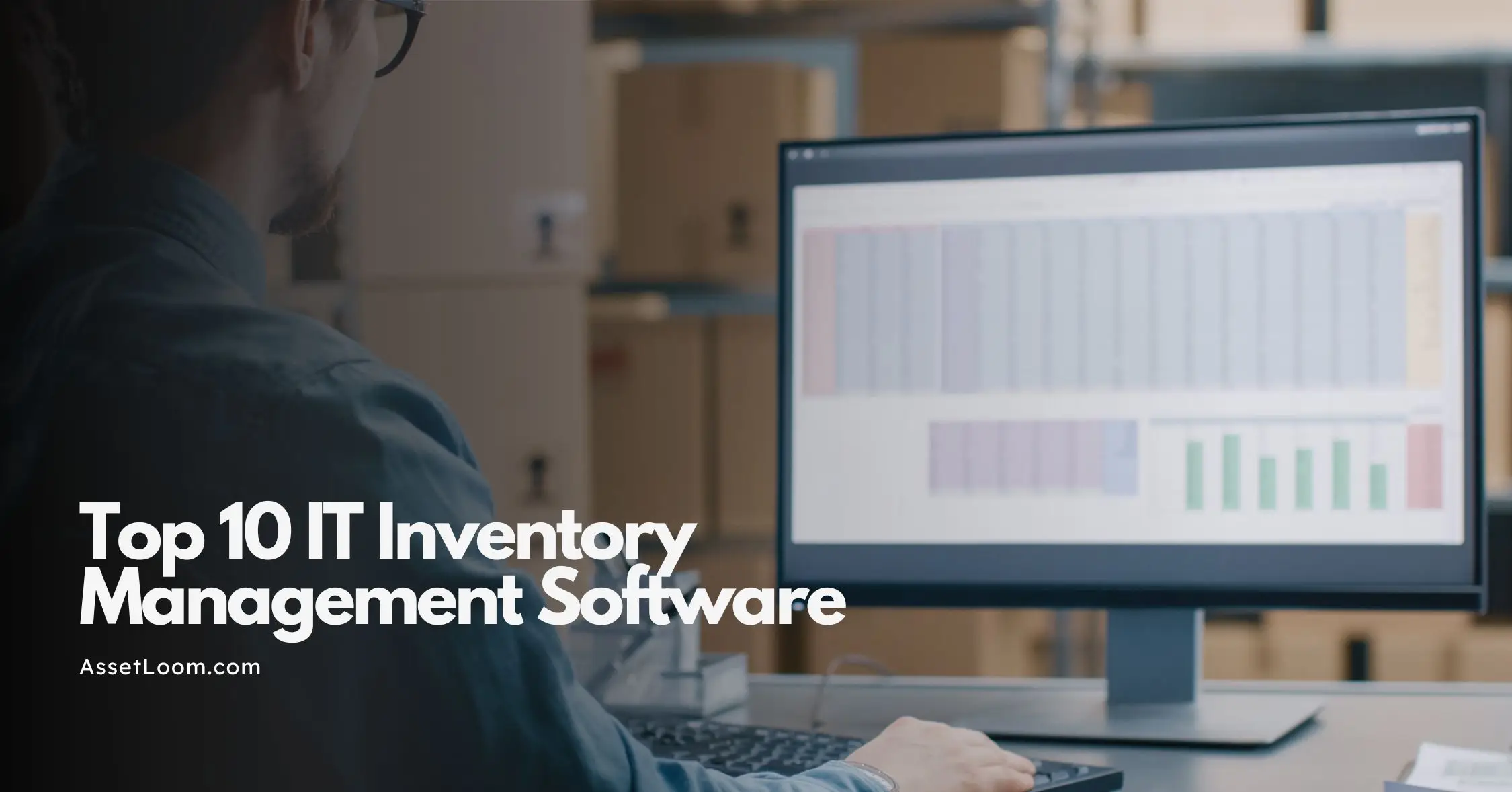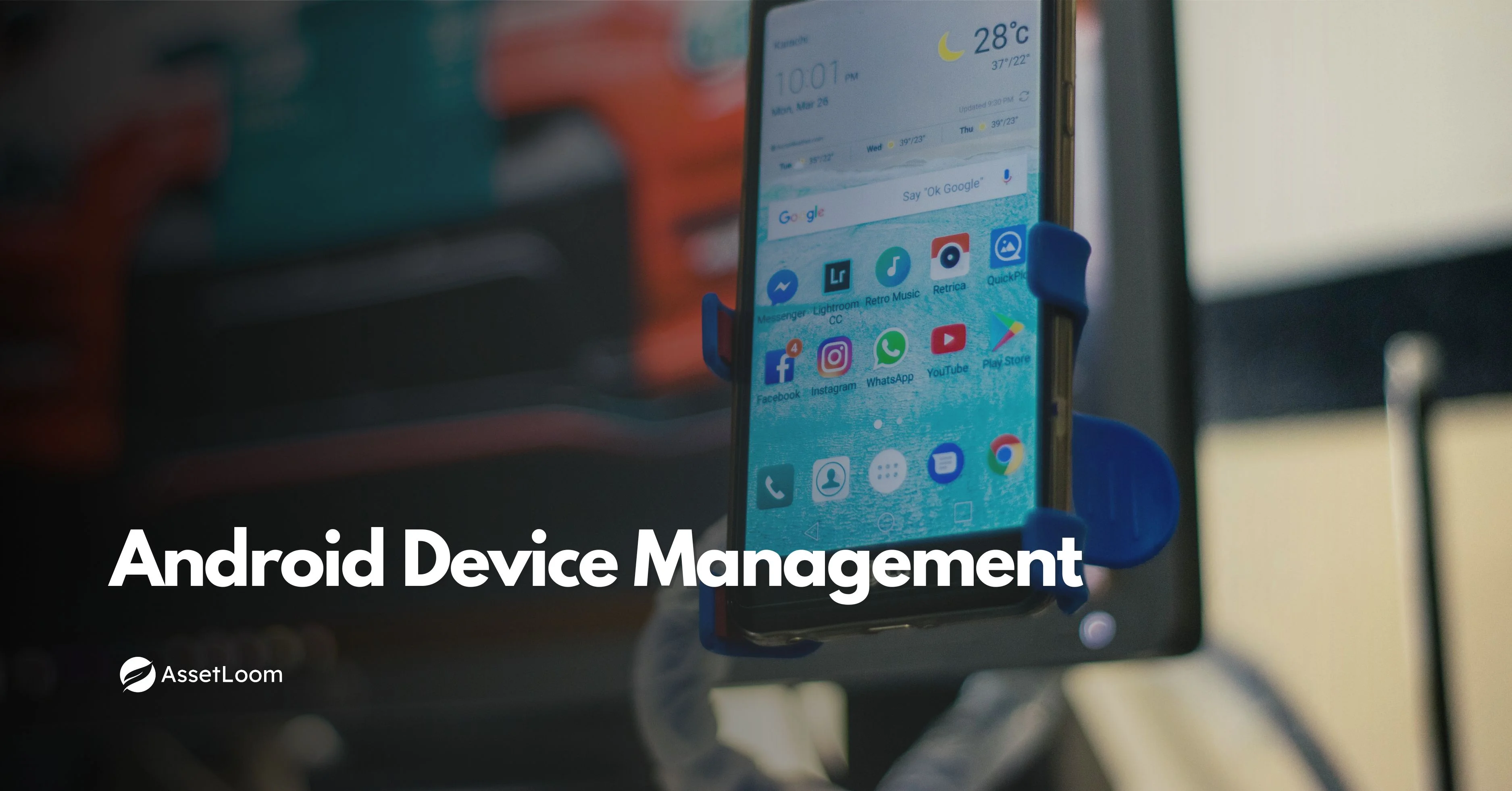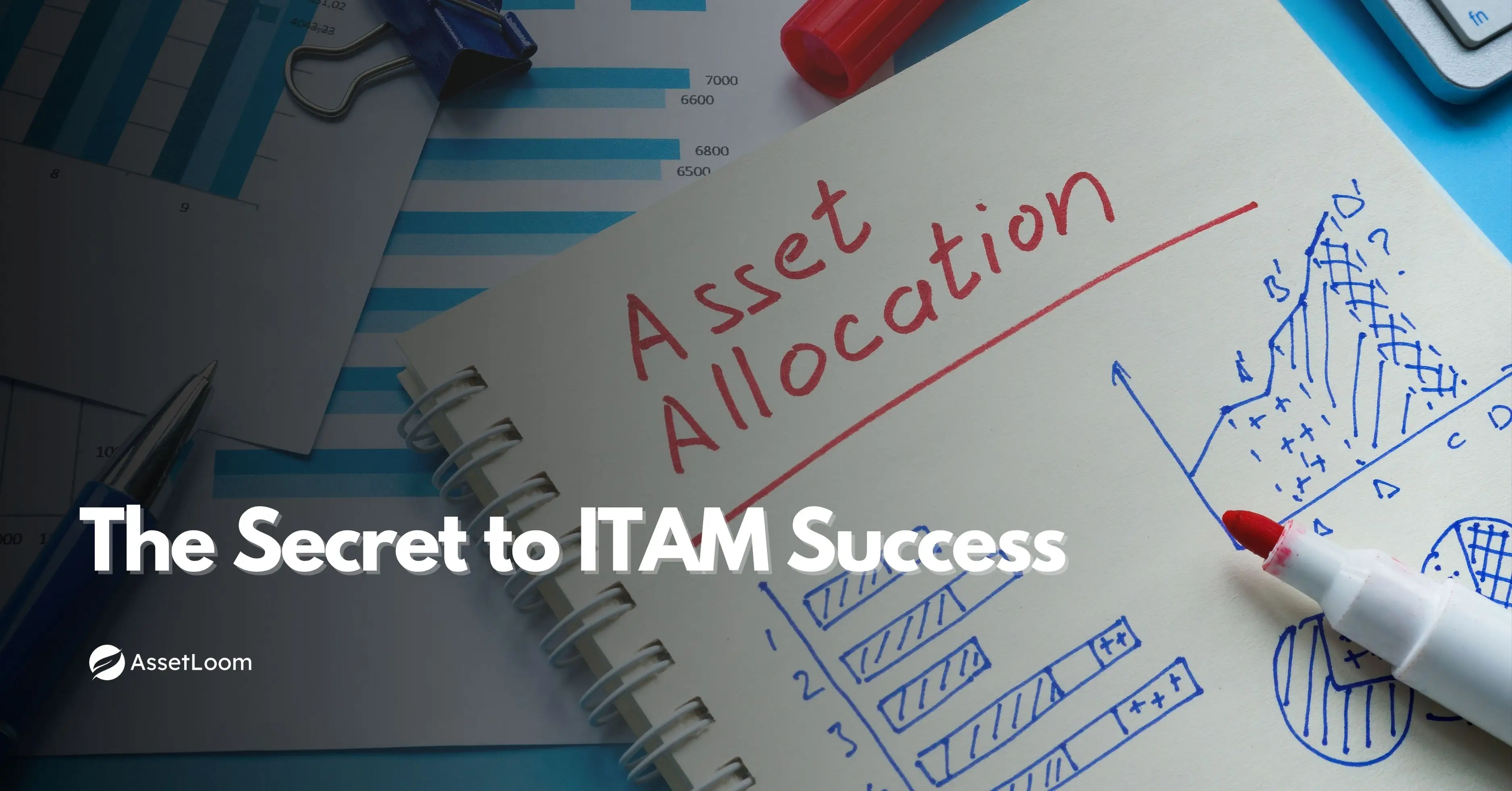How Equipment Maintenance Tracking Software Enhances ITAM
Equipment maintenance tracking software improves IT Asset Management (ITAM) by automating schedules, enhancing asset visibility, and reducing costs,...
IT equipment plays a critical role in keeping your business running smoothly. However, managing its maintenance can quickly become a challenge. From ensuring regular servicing to handling repairs, it’s easy to miss a key task, which can lead to unexpected downtime and costly fixes.
Equipment maintenance tracking software is designed to help with these issues. It allows you to stay organized by keeping track of maintenance schedules, repairs, and the overall condition of your equipment. By integrating this software with your IT asset management practices, you can ensure your equipment stays in peak condition throughout its lifecycle.
Understanding ITAM and Equipment Maintenance Tracking
To fully appreciate how equipment management software enhances IT Asset Management (ITAM), it’s important to understand what each of these tools does and how they work together.
What is IT Asset Management (ITAM)?
IT Asset Management (ITAM) is all about managing and tracking your company’s IT assets—things like computers, servers, and other equipment. ITAM helps ensure that your assets are being used effectively and responsibly throughout their entire lifecycle, from when they’re first acquired to when they’re eventually replaced or retired.
With ITAM, businesses can:
- Track asset usage to make sure everything is being used efficiently.
- Ensure compliance with regulations and company policies.
- Minimize risks by managing the condition and security of assets.
- Control costs by avoiding unnecessary purchases and extending the life of existing equipment.
In short, ITAM gives you a big-picture view of all your assets and helps you manage them in a way that saves time and money.
What is Equipment Maintenance Tracking Software?
Equipment maintenance tracking software is focused on ensuring your IT equipment stays in good condition over time. This software helps you schedule and track all maintenance activities for your equipment, including repairs, upgrades, and regular check-ups.
Some key features of maintenance tracking software include:
- Automated maintenance scheduling based on usage or time.
- Logging of maintenance history for each asset, such as repairs or part replacements.
- Alerts and reminders when maintenance is due.
- Condition tracking to help you predict when repairs or replacements might be needed.
In short, this software keeps your equipment running smoothly by making sure it gets the care it needs before problems occur.
How ITAM and Equipment Maintenance Tracking Work Together
While ITAM tracks the overall lifecycle of your IT assets, equipment maintenance tracking software focuses on their ongoing care. Both are important but serve different purposes.
When used together, these two systems can provide even more benefits:
- ITAM gives you a comprehensive view of your assets and helps manage costs.
- Maintenance tracking software makes sure your assets are properly maintained, reducing the risk of unexpected failures and costly repairs.
By integrating both, you get a more complete solution for managing your IT equipment—keeping it running longer and more efficiently while avoiding unnecessary downtime.
How Equipment Maintenance Tracking Software Enhances ITAM
1. Centralized Asset Tracking and Maintenance Management
Equipment maintenance tracking software provides a centralized system where organizations can easily monitor and manage the maintenance of their IT hardware. By bringing everything together—maintenance activities, histories, and schedules—into one place, it reduces the risk of missing important tasks or neglecting asset care.
For instance, AssetLoom allows real-time tracking of IT assets, including maintenance schedules and service histories. This ensures that IT teams have a complete view of each asset’s status, location, and usage, which is essential for maintaining full accountability and supporting your IT Asset Management (ITAM) goals.
With everything in one system, your team can access and update asset and maintenance information quickly. This simplifies workflows, cuts down on complexity, and helps make faster, more informed decisions.
Centralized systems like AssetLoom also help reduce data silos and improve overall efficiency, as highlighted by the Canadian Centre for Cyber Security. By keeping asset management and maintenance tracking in one place, organizations can ensure their equipment is well-maintained, reducing downtime and avoiding costly repairs.
2. Automated Maintenance Scheduling and Timely Alerts
Managing IT equipment can be tricky, especially when it comes to keeping up with maintenance tasks. If maintenance isn’t done on time, it can lead to equipment failures and unplanned downtime. That’s where automated scheduling helps.
With maintenance tracking software, scheduling maintenance becomes much easier. Instead of relying on manual entry, the software automatically generates schedules for when each piece of equipment needs maintenance. This could be based on how often the equipment is used, manufacturer guidelines, or specific time intervals. It ensures that nothing gets missed and that equipment is well-maintained.
On top of that, the software sends alerts when maintenance is due. This means your team gets reminders, so no one forgets about a task. These timely reminders help avoid last-minute repairs and reduce the risk of unexpected breakdowns.
By automating maintenance schedules and reminders, you can spend less time worrying about missed tasks and more time focusing on other important things. It helps keep your equipment running smoothly and can save your team from dealing with costly issues later on.
3. Improved Asset Visibility and Lifecycle Management
Knowing the condition of your IT assets is essential for making informed decisions about repairs, replacements, or upgrades. Without clear visibility, it’s easy to lose track of what needs attention and when. This is where equipment maintenance tracking software really shines.
With maintenance tracking software, you get a complete view of your equipment's status and maintenance history. You can see when it was last serviced, what repairs were made, and when it will need attention again. This visibility helps you stay on top of things and avoid surprises.
Additionally, tracking this data over time gives you valuable insights into the equipment lifecycle management. You can see patterns—such as which pieces of equipment need frequent repairs or are nearing the end of their useful life. This makes it easier to plan for replacements or upgrades before a failure happens.
With better visibility and lifecycle tracking, you can make smarter decisions about when to repair, replace, or retire assets. This helps keep your equipment running efficiently while ensuring you’re not holding on to assets that are no longer cost-effective.
4. Enhanced Compliance and Security
When managing IT assets, staying compliant with industry regulations and ensuring the security of your equipment is crucial. Regular maintenance plays a big role in both of these areas.
Equipment maintenance tracking software helps you stay on top of compliance by ensuring that your equipment is maintained according to required standards. Many industries have strict regulations about how IT equipment should be serviced and inspected. By keeping track of maintenance activities, the software helps you meet these regulatory requirements and avoid potential fines or penalties.
In addition to compliance, well-maintained equipment is also more secure. Regular maintenance helps prevent equipment failures that could lead to security vulnerabilities or data breaches. For example, outdated hardware that isn’t properly maintained could create gaps in your security defenses. By staying on top of repairs and upgrades, you can ensure that your equipment remains secure and functions as it should.
With maintenance tracking software, you can have a complete record of all maintenance activities, which provides transparency in case of audits and helps you keep everything up to date.
5. Cost Reduction and Efficiency Gains
While maintaining IT equipment might seem like an additional cost, it can actually save your business money in the long run. Regular maintenance helps you avoid expensive emergency repairs, unplanned downtime, and unnecessary replacements.
With equipment maintenance tracking software, you can schedule preventive maintenance, which means addressing issues before they become bigger (and more costly) problems. By catching small repairs early, you avoid the need for major fixes that could disrupt operations and cost a lot more.
In addition, the software helps you make the most of your equipment by ensuring it runs efficiently for as long as possible. Well-maintained assets last longer, meaning you can delay the need to purchase new equipment. This not only saves money but also extends the return on investment (ROI) for your current assets.
By improving maintenance scheduling and reducing downtime, the software makes your overall operations more efficient. Less downtime means more productivity, and that’s a win for both your budget and your team.
6. Integration with ITAM Tools
For businesses looking to improve their asset management, integrating equipment maintenance tracking software with IT Asset Management (ITAM) tools is a game-changer. ITAM focuses on tracking and managing assets throughout their lifecycle, while maintenance tracking software ensures that those assets remain in good working condition.
By connecting both systems, you create a seamless workflow where all asset and maintenance data is available in one place. This integration allows you to:
- Track both asset usage and condition: With maintenance data linked to each asset, you gain a comprehensive view of its status, including how frequently it requires repairs and its overall performance.
- Make informed decisions: You’ll have accurate data to help decide when it’s time to replace or retire equipment. This helps prevent unnecessary purchases and ensures you’re investing in equipment that still provides value.
- Improve efficiency: By combining asset management with maintenance tracking, your team can handle both tasks more easily. You can schedule repairs and updates without having to switch between systems, saving time and reducing the chances of errors.
With ITAM tools and maintenance tracking software working together, your organization can better control both the lifecycle and maintenance of your assets, resulting in cost savings, reduced downtime, and improved overall asset management.
Conclusion
Equipment maintenance tracking software enhances IT Asset Management (ITAM) by keeping your assets well-maintained and efficient. It centralizes maintenance data, automates scheduling, and provides alerts, reducing missed tasks and costly repairs. Integration with ITAM tools improves visibility, decision-making, and helps extend asset lifecycles.
By using software like AssetLoom, you can streamline operations, reduce downtime, ensure compliance, and save costs—all while keeping your equipment in top condition for longer.

Related Blogs
Subscribe for Expert Tips and Updates
Receive the latest news from AssetLoom. right in your inbox


